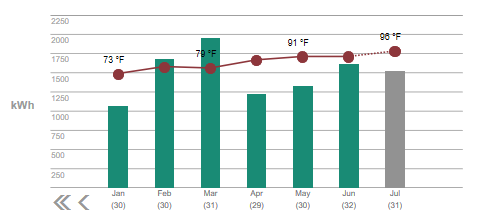1 . 30% Tax credit only applies to solar, not entire project.
2. Lot of money to save about 50 or 60 bucks a month.
3. I have radiant barrier. Never again. Roof leaks go undetected.
4. Look at ductless system if you are gonna throw that much into improving existing hvac.
5. One outfit doing all ? What are they experts at? I think I would get separate quotes.
6. Good luck with the 25 year warranty.
1. Interesting point. The wording says it also includes "installation costs", so it may be a little shady if they're going to claim the entire bill as an installation cost. I wonder if this is also why the seller uses language like "designing the system" and doesn't seem interested in disclosing specific component model numbers and prices.
2. I figured at first maybe 50% savings, or $100/mo. Which yes, is a lot of months to make that savings worth it. But given that power companies even have policies about giving credit back for excess energy produced on the grid, I think that a lone is indicating people really are entering that situation -- of saving like 90% of their electric cost, and even getting credit.
3. Do you have a lot of tree's? On a 2nd story here, and not a lot of tree's. But valid point, the gradient barrier is mostly static, but indirectly has a maintenance cost (as removing it for maintenance probably means replacement).
4. Will do! TY
5. Yes, one outfit -- but yes, they are managing the associated sub-contractors, coordinating the work and taking the responsibility if things go wrong (single point of contact to fix any part of the "system"). I think they try to justify the markup in price by this; they recognize that they "aren't cheap" because that's how they'll keep the doors open for 25+ years. I take it as a similar thing with Apple -- expensive products, that helps pays for a healthy longer term support network. Not trying to fully defend the concept, but they have been around 14 years (many solar shops probably have 10+ years now established).
Last edited:

